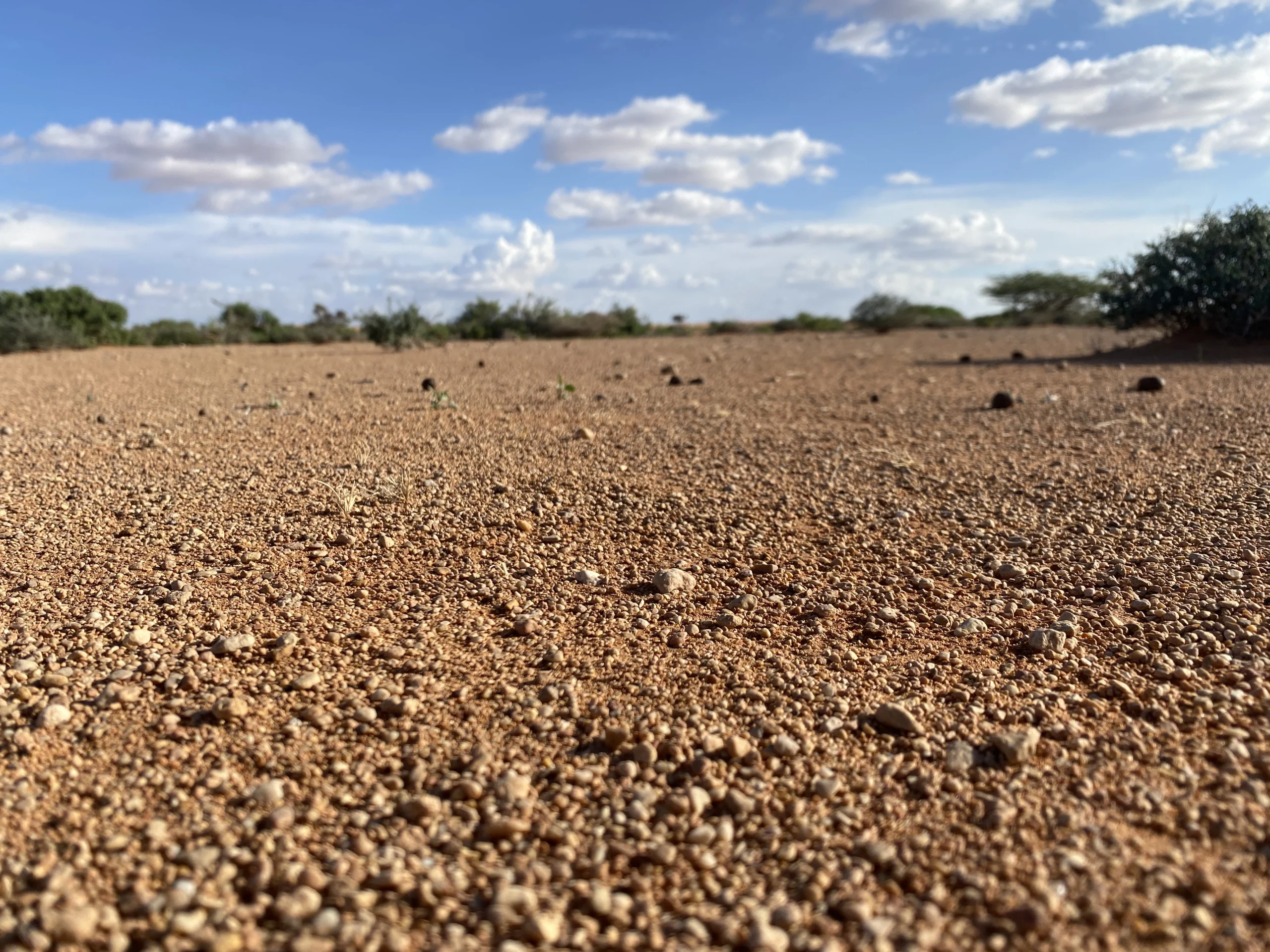By Michael Hauser, Senior Associate, CIFOR-ICRAF and BOKU University
Somalia is facing a severe humanitarian crisis, with about half of its population – approximately 8.25 million people – requiring lifesaving humanitarian and protection assistance, being heavily dependent on food aid. Among them, around 4.3 million people face crisis levels of hunger. This situation is further complicated as about 3.8 million people are displaced within the country.
Food aid responds to immediate crises like famine, conflict, or natural disasters. While it is crucial in saving lives, food aid can sometimes become a prolonged solution, leading to dependencies and harming local food markets. Long-term solutions should thus focus on building resilience of communities to withstand future shocks. This includes supporting local agriculture, improving farm infrastructure, and implementing programs that enhance the ability of communities to produce and access their own food, and to protect and restore natural capital.
To strengthen resilience, humanitarian and development organizations are increasingly looking at ways to integrate immediate food aid with longer-term development initiatives. Based on the 13 principles laid down by the High-Level Panel of Experts on Food Security and Nutrition (HLPE), agroecology could help reduce food aid dependencies. But how can these principles foster transitions from aid to resilience and self-reliance in such a complex environment as that of Somalia? Together with four members of the BRCiS Consortium (Building Resilient Communities in Somalia) of humanitarian NGOs that take a holistic approach to supporting Somali communities to build resilience against recurrent shocks and stresses, CIFOR-ICRAF and the Transformative Partnership Platform on Agroecology (Agroecology TPP) have launched the Operationalising Agro-Sustainability in Somalia (OASIS) project to find out. The project is funded by the Delegation of the European Union to Somalia and coordinated with the Ministry of Agriculture and Irrigation in Mogadishu.
One of the project’s objectives is to understand whether the application of agroecological principles – such as crop diversification, intensified drought-tolerant forage production for livestock, and possibly an introduction of strengthened milk and egg value chains – can lead to increased production capacity of local agro-producers amid climate shocks. With the help of the Soil and Land Health Global Research and the Land Degradation Surveillance Framework (LDSF), the aim is to develop context-specific environmental management practices in support of agroecological transitions. This informs the use of climate-responsive and regenerative landscape and rangeland management techniques, which include more effective management of water resources and working with environmental management groups to restore ecosystems. CIFOR-ICRAF also helps to better understand and evaluate the demand side – increasing the consumption and demand for locally-produced healthy foods among food-insecure Somalis.

Two of the fundamental pillars of this transition are knowledge and learning. How can the sharing of agroecological knowledge help catalyze change? Coupled with social protection, community engagement and technical support, we assume that a deeper understanding of agroecological principles helps community members build resilience to shocks. CIFOR-ICRAF helps capture lessons learned from each project and aggregate those into future strategies to scale potential impact.
And talking about impact, a critical aspect of the OASIS project is impact assessment: can the agroecological transitions be quantified? To answer this question, the project looks at specific outcomes: more stable crop yields, better environmental practices, and a shift in local food consumption patterns. This includes measuring crop yields before and after implementing agroecological practices, estimating changes in soil organic matter, nutrient levels, moisture content and improvements in soil health, and evaluating changes in the nutritional quality of diets within the community.
Despite progress, the situation in Somalia remains critical. The combined effects of climate shocks, conflict, and protracted economic challenges are creating one of the worst humanitarian crisis in the world. Given this context, the OASIS project becomes even more critical. We believe that addressing immediate humanitarian needs is essential, as are long-term strategies focusing on sustainable agriculture, environmental resilience, and community empowerment.
For more information about the project or this blog, please contact Michael Hauser at m.hauser@cifor-icraf.org
The four BRCiS Consortium members include the Norwegian Refugee Council, Concern Worldwide, International Rescue Committee, and Save the Children.
The OASIS project runs from 1 October 2023 until 30 September 2025.
Photo credits: Michael Hauser

